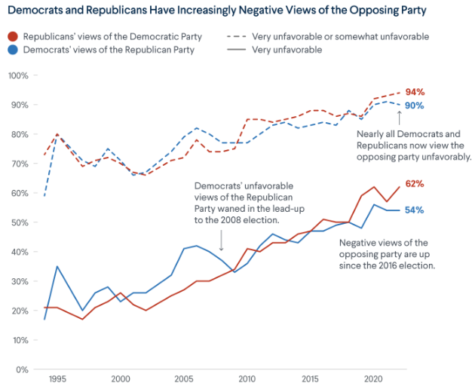How pretentious are the Academy Awards?
April 29, 2021
This award season has been bleak. The elitists play dress up as they hold their gold trophies, trapped in their lush gardens and backyards because of the lockdown procedure in which they must take photos of themselves in their gowns or suits with their awarded statue. Doubtless it is enjoyable to see beautiful people in beautiful clothing made by more beautiful people celebrating their beautiful movies.
However, this virtual award season was futile; the award shows themselves are an expression of a microscopic group of chosen people’s preferences for nominated and awarded films which supposedly represent the overarching taste of cinematic society. Over quarantine, I officially realized my taste is different from the Oscar roundtable who decides which films are the best of the year (I had acknowledged this awareness in the past but it is here I came to accept such a divergence in taste).
Nonetheless, some of my favorite films have made it to the Oscar cutting board to be put on display through nominations. In fact, I still cheer when my favorite films win an Academy Award—but what does this award really prove? Does it suggest my taste is superior to yours? Or that if you haven’t seen this film, you cannot claim yourself a film enthusiast? Just how pretentious are award shows? Moreover, just how pretentious do awards make us?
Watching the 93rd Academy Awards, I knew of the nominations, recognized the faces, but did not emphasize the importance of the names except for a select few. In fact, the only film I was rooting for was Another Round by Thomas Vinterburg—one of my favorite films of the year. Should I claim I wanted the Oscars to recognize this film? Doesn’t that suggest the superiority of the Oscars in taste over society? Nonetheless, it was extraordinary to see the Danish man clamber up the steps to accept the award for Best International Feature Film.
After that, the awards show once more went bleak. Doubtless this closing of the red curtains is a partiality on my part, but I couldn’t help tuning out the following moments of the night. My pretension far extends the running time of three hours.
Is this disregard a snub at the nominated and awarded films? Absolutely not; I could retell the importance of Emerald Fennell, Chloe Zhao, Daniel Kuluyya, Frances McDormand…the crux of the matter is it doesn’t matter. An award does not equal superiority nor does a nomination equal acceptance. It simply is the knights (and dames) of the Oscar roundtable sitting around a coffee table deliberating on their favorite films of the year, ultimately disregarding many a talent while pooling talent(less) features.
I’ve come to realize there is no race to watch all the nominated and awarded films, a tradition my mother and I would accomplish preceding Oscar night. Moreover, the intimate (yet COVID-friendly) scene of the Academy Awards populated with the nominated faces shows the exclusivity of this talent — a party for the Chosen Ones. I no longer hunt for these Chosen Ones when scrolling through films; in the end, an award does not equal universal artistry.
After all, Green Book is not my type of artistry even with a Best Picture award stamped onto its movie poster. Neither is Nomadland; I may acknowledge recognition of craftsmanship, but it does not have to wholly appeal to me. I’ve curated my own desires and wants for film and more often than not the award season does not recognize just what I’m searching for.
I suppose I am substituting one form of pretension for another, the award season trap with the knowledge my taste aligns with my criteria and therefore is exceptional. But rather than being fed this awareness through awards, I have come to this realization without training wheels.
For a long time I used the Academy Awards as a crutch to increase my exposure to good films (after all, the Oscar knights occasionally differentiate good from bad art), and indeed, it is as good as any as a start if wanting to watch artistic films. However, lately award nominations and winnings have come to symbolize superiority of taste. And when the people choosing these Chosen Ones are of a select few, the individual’s taste remains in the shadows.
The Oscars could never recognize everyone’s preference and favorite contemporary films of the year. And because they are fallible in this regard, one should not consider their own taste as a lesser force.
Rather, the brilliance of film is the ability of artists to cater to different members of society: a film for every audience. Award shows are incapable of recognizing this universality, and thus hail the Chosen Ones in which the nominated and awarded films are superior; this is the blight the award season creates. Indeed, it is a blight that will not deter. At least in the shadows I am guarded in my pretension and self-championship of film.







